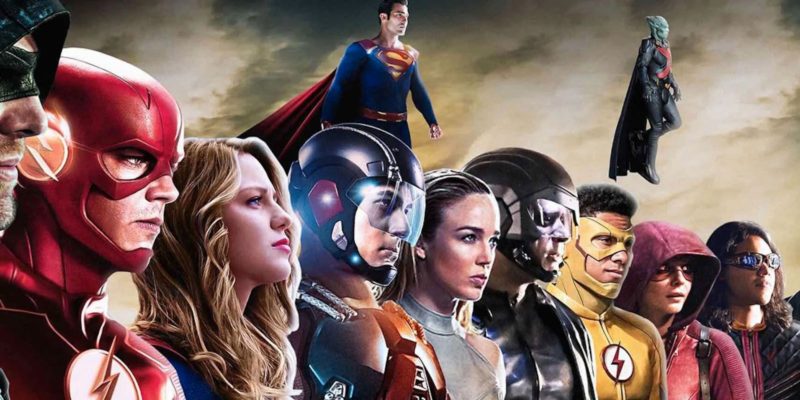
[ad_1]
The DCEU and the Arrowverse both offer subpar interpretations of DC’s superheroes. Here’s why the Arrowverse is slightly easier to watch.
The Arrowverse is the constant subject of derision online for its hackneyed plot points and shoehorned cameos. Every series turns into a poorly-made superhero soap opera after three seasons if not sooner. As frustrating as this may be, the ability of the writers to eventually bring character arcs full circle is redeeming and, at times, heartfelt. The same cannot be said about the DCEU, however. That’s why the relatively low-budget DC Arrowverse edges out superiority over DC’s multi-billion dollar movie franchise.
The DCEU has its highlights. James Gunn’s Suicide Squad was not only met with critical and fan praise but spawned a lauded HBO Max series, Peacemaker. Wonder Woman was original and thrilling, despite its sequel’s disappointing performance. Joaquin Phoenix’s Joker became an overnight sensation, though its place in the DCEU is fluid and debatable. But the overall superheroics of the DCEU pale in comparison to the execution — however faulty — of the Arrowverse.
The Arrowverse Plot Manages to Thicken
Shows in the Arrowverse often feel like they’re making up the story as they go along. Arrow consistently jumped back and forth on Speedy’s identities and Oliver Queen’s moral code. However, among these changes and odd plot choices, there is actually a great deal of character development that happens. Supergirl slowly emerging from her cousin’s shadow unfolds completely with time, and her inter-dimensional interactions carry real weight.
This isn’t true in the DCEU. The plots seem disjointed and only connected by throwaway lines and haphazard imagery. The redeeming factor of character arcs closing at the end of the season isn’t present like it is in the Arrowverse. The DCEU tends to simply drop plotlines based upon the course correction it makes. Even at Supergirl‘s most contrived, its story beats are resolved at the end of the arc and there isn’t much doubt as to where the characters stand. This thoughtfulness and story completion is flawed, but it’s missing entirely from the DCEU.
The DCEU Is Just Not Fun
Popular media is generally about things being fun. The Arrowverse, for all of its darkness and moral grey areas, allows for fun. Characters easily return from the dead, crossover episodes are musicals and there’s the frequent intention of memeability. Even at its more serious moments or action scenes, the Arrowverse’s effects and fan service at least serve to create a momentary thrill.
The DCEU tries much too hard, though it’s never entirely clear as to what it’s trying to accomplish. The overserious Snyderverse aside, the fan service centers around simply having heroes fight the bad guys. The few fun outings, such as Birds of Prey or Suicide Squad, seem brilliant in comparison to films centered on core characters like Batman or Superman. As the DCEU nears its second decade, greatness is found not within it, but in building stories outside of it.
The CW’s Arrowverse and the DCEU are exact opposites. The Arrowverse properties tend to continue long after their plot seems complete. They add unnecessary complications and plot twists only intended to carry the story into another season. Had Arrow concluded within its first few seasons, it likely would be much more warmly remembered. The DCEU has had such difficulty finding its stride that the recent spate of well-received properties and the hype surrounding The Batman are shocking. It began with such a slow start that after nearly a decade of films, only the most recent movies have been successful.
As these two DC universes move forward, they should learn from each other. When a story is told, it ought to be finished — whether that’s tying up loose plot threads or simply allowing a series to end once the story has run its course. Stories should also entertain their audience and not take themselves too seriously. Both universes must move forward from their failures. Not only do the fans who have committed so much time and energy to these projects deserve it, so do the heroes in the stories, too.
About The Author
[ad_2]






